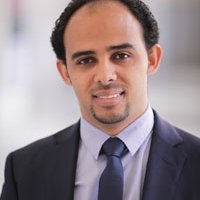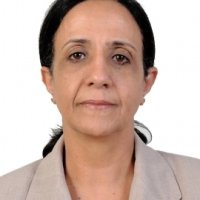Yemen between War and Political Solution
Three experts offered their analysis on the ongoing conflict in Yemen and assessed the prospects for a political solution.
On December 4, 2015, the Middle East Program at the Woodrow Wilson Center hosted the event “Yemen between War and Political Solution,” with Mohammad Al-Shami, youth activist, advocacy trainer, and former Leaders for Democracy Fellow at Maxwell School of Syracuse University; Amat Alsoswa, founder of the Yemeni National Women’s Committee, former Human Rights minister, and former UN Assistant Secretary General; and Barbara Bodine, Distinguished Professor in the Practice of Diplomacy and Director for the Institute for the Study of Diplomacy in The Edmund Walsh School of Foreign Service at Georgetown University, and former U.S. Ambassador to Yemen. Henri J. Barkey, Director of the Middle East Program at the Woodrow Wilson Center, moderated the event.
Al-Shami began by discussing the stakeholders involved in the Yemeni crisis, emphasizing the importance of identifying those who will determine a political solution that takes into consideration the nuances of the conflict. He pointed to two potential outcomes of the war: the dissolution of Houthi rebels by the Saudi-led coalition or the establishment of a new government by Houthis and their allies. Regarding a possible political solution, Al-Shami argued negotiations must not be limited to the government and Houthi rebels. A durable solution, he stressed, should incorporate the involvement of all parties, including civil society. Al-Shami concluded his remarks by addressing the failure of the international community to adequately respond to Yemen’s crisis.
Alsoswa continued the conversation by describing the current state of war in Yemen. She distinguished the war from all previous conflicts in Yemen’s history by explaining this war is not contained to a particular region of Yemen but has extended from border to border. Alsoswa then raised concerns over the severe destruction caused by the war and the challenges this will pose to rebuilding the country. She asserted that the Yemeni state must address the cumulative failures of the national authorities to respond to the immediate needs of their people. In her discussion of the conflict as a Saudi-Iran proxy war, Alsoswa noted while this characterization began as an overstatement, it has now become a reality. She expressed how despite these challenges, a political solution is possible if the international community pressures the parties involved in the war to reach peace. However, each party must leave with the impression that they achieved their respective objectives, she said.
Bodine agreed with Alsoswa that despite a strong Yemeni identity and a combined high level of tolerance for diversity, the war has destroyed Yemen’s social fabric. She offered an analysis of Saudi Arabia’s view of Yemen as a domestic issue rather than a foreign policy issue and highlighted Saudi Arabia’s interests in ensuring that Yemen retains a non-threatening, compliant government. Bodine mentioned that because the United States is so closely identified to the coalition, it is not likely that it will pave the path toward a political solution. She argued the group that has benefited from Yemen’s chaos the most has been al-Qaeda in the Arabian Peninsula (AQAP). Bodine also expressed how a political solution will have to entail power sharing in Yemen, the involvement of the United Nations, and pressure on Saudi Arabia, likely from actors such as Oman and the United Arab Emirates. She predicted that the costs other countries are suffering from because of the conflict may trigger them to pressure Saudi Arabia to retract. Bodine stressed the necessity of a “day after plan” and a concerted international effort to help rebuild Yemen and provide humanitarian assistance to its people.
By Nishaat Shaik, Middle East Program
Speakers

Peace-building/Advocacy Trainer, Yemen.


Senior Fellow, Council on Foreign Relations
Hosted By

Middle East Program
The Wilson Center’s Middle East Program serves as a crucial resource for the policymaking community and beyond, providing analyses and research that helps inform US foreign policymaking, stimulates public debate, and expands knowledge about issues in the wider Middle East and North Africa (MENA) region. Read more
